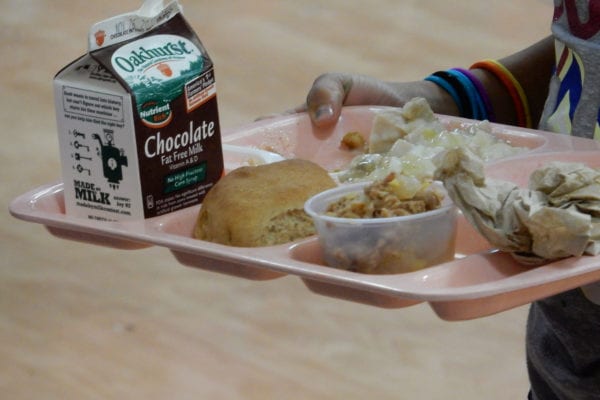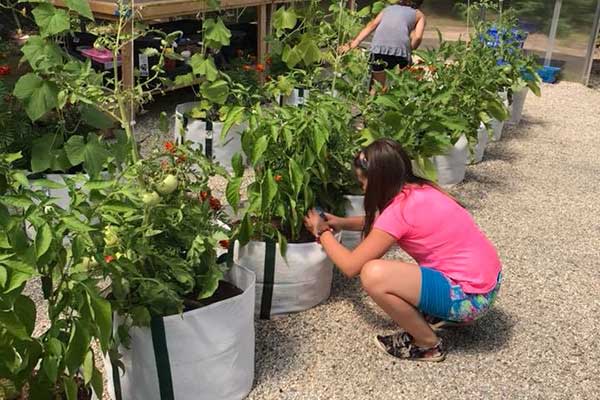Maine’s clean and healthy environment strengthens the state’s economy and is central to our way of life. Holding polluting corporations accountable through systemic changes in local, state, and federal policies is the key to creating a more healthy, prosperous, sustainable future for us all.
NRCM’s Sustainable Maine program takes a practical, collaborative approach to solving environmental problems faced by Maine people and communities, particularly with how to better prevent and manage waste. We want to make doing the right thing for people and the environment the easy, clear choice for individuals and businesses.
Our vision of sustainability in Maine is ensuring a healthy future for life on Earth. Unfortunately, polluting corporations continue to ignore what is right for the environment at the expense of people’s health. Instead, they spend big money to try to convince people that it’s an individual’s responsibility to act, not theirs. But we are onto them.
The fossil fuel industry knows our clean energy transition is underway, so to keep their profits flowing, they are ramping up production of single-use plastics. We cannot allow this to happen. At every stage of the life cycle for plastics — from production to disposal — there are significant human health impacts, and they disproportionately affect economically and socially disadvantaged people.
Many of us feel guilty that we still rely on gasoline-powered cars, and we can’t seem to avoid wasteful packaging despite our best efforts—but it’s not our fault as individuals. In the State House, in schools, and in our communities, NRCM works with local businesses, municipalities, and Maine people to galvanize support for solutions that require corporations be a part of solving the problem and make it easier to reduce waste and pollution.
Learn more about our Sustainable Maine program priorities and how you can help on the pages below.

Survey of Casco Bay Finds Microplastics in Four Distinct Regions
The Friends of Casco Bay assessment identifies pieces of the plastic waste, which marine life can ingest and which attract toxins. But none of the microbeads banned in Maine in 2015 showed up. By Mary Pols, Staff Writer Portland Press Herald news story The first survey of Casco Bay for microplastics, the troubling, hard-to-see fragments Read More

South Portland Food Waste Pilot Program Increases Recycling
By Juliette Laaka The Forecaster news story SOUTH PORTLAND — Since its inception last May, a pilot program to collect food waste has increased recycling rates in two participating neighborhoods. About 600 households in the Knightville and Meetinghouse Hill neighborhoods received 6-gallon buckets to use for curbside compost collection. Additional bins were set up at Read More

Adult Ed, Recycling Tours: How to School Yourself in Sustainability
Mainers can take a class in Lewiston about electric cars, check out the ecomaine facility, or get a helping hand from the Natural Resources Council of Maine – just to name a few resources. By Ray Routhier, Staff Writer Portland Press Herald news story Not that long ago, the idea of taking a class to Read More

York Teens Want Their Town to be the Latest to Ban Polystyrene Containers
By Deborah McDermott The York Weekly news story Four York High School seniors are taking democracy and a concern for the environment to heart, and have launched an online petition drive to ban polystyrene takeout containers from being used by restaurants in York. Margaret Wilkinson, Sophia Eytel, Anya Walsh and Sammi Pooler, all students in Read More

Opposition to LD 1703, An Act to Create Equity for Wine and Spirit Container Deposits
Senator Saviello, Representative Tucker, and members of the Joint Standing Committee on Environment and Natural Resources, my name is Sarah Lakeman and I am the Sustainable Maine Project Director for the Natural Resources Council of Maine. I appreciate this opportunity to testify in opposition to LD 1703. NRCM has had a long history working to Read More

Maine at the Cutting Edge of Compost Technology
By Abigail Curtis, BDN Staff Bangor Daily News news story Most people don’t spend a lot of time thinking about what happens to waste once it’s been thrown out or flushed away. But Mark King and the other members of the Maine Compost Team are not like most people. King, an environmental specialist with the Read More

Portland Students’ Ocean Litter Project Wins Conservation Award
By Kate Irish Collins The Forecaster news story PORTLAND — In their bid to protect the ocean from litter, two students at King Middle School have won the People’s Choice Award from the Natural Resources Council of Maine. The council held its annual conservation leadership awards ceremony Oct. 19 in Bath, where Addie Farmer, 13, Read More

New Law Bans Lead Fishing Tackle to Protect Loons
By The Associated Press Bangor Daily News news story A new Maine law bans lead fishing tackle in hopes of protecting loons. The Department of Inland Fisheries and Wildlife says keeping lead fishing weights out of Maine waters will better the birds’ survival and spur population growth across the Northeast. Ingesting lead fishing tackle is Read More











